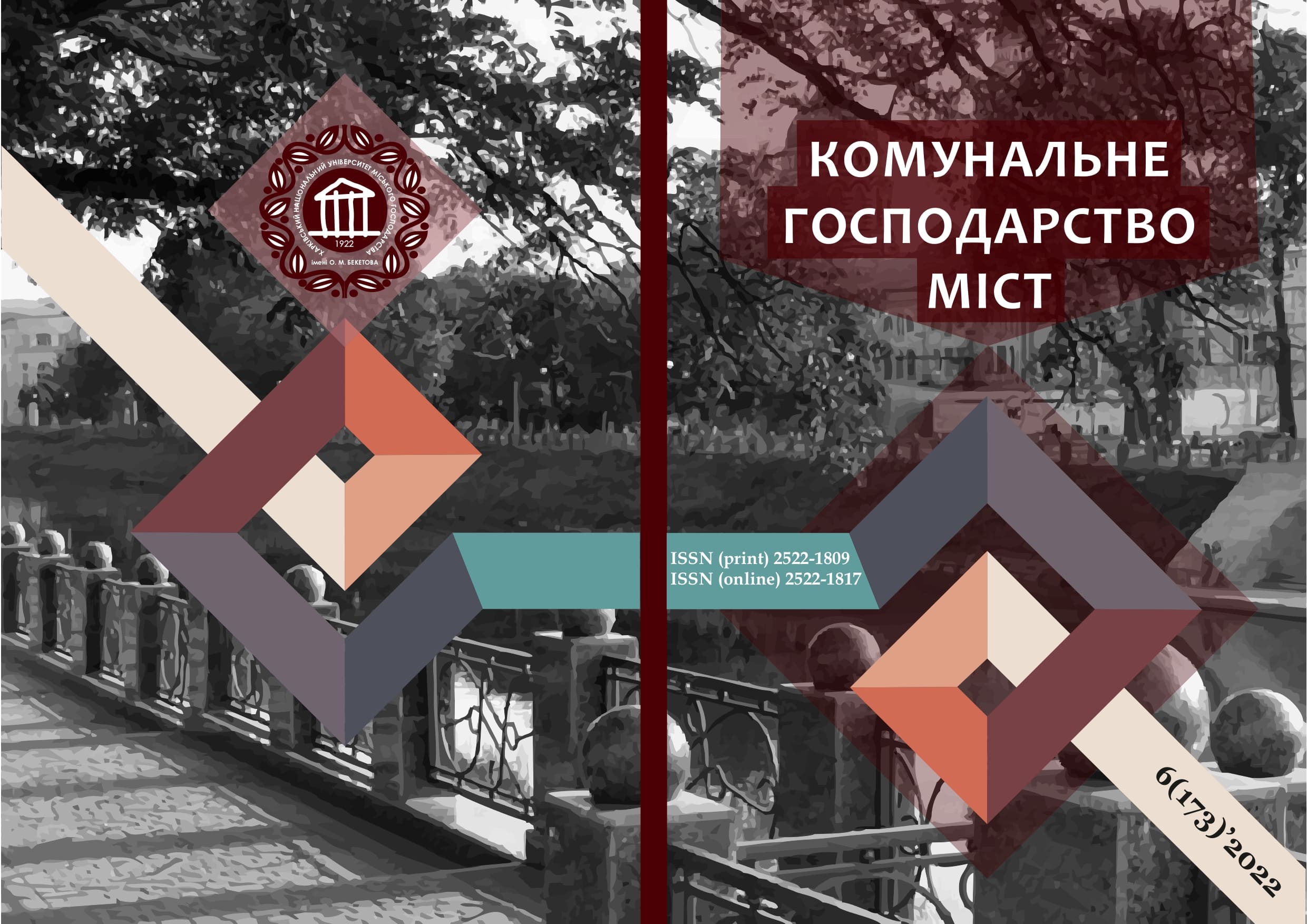METHOD OF DETERMINING THE TIME PARAMETER OF THE GAS GENERATOR HYDROGEN STORAGE AND SUPPLY SYSTEMS
DOI:
https://doi.org/10.33042/2522-1809-2022-6-173-106-110Keywords:
water supply saving system, gas generator, clock parameter, phase-frequency characteristicAbstract
The method of determining the hourly parameter of the main element of the system for saving and supplying water, the gas generator, has been developed. The method is based on the approximation of a partial frequency response for the phase-frequency characteristic of the gas generator of the water saving system in terms of frequency. This approximation is used to construct a mathematical dependence, which is used in determining the time parameter of the gas generator. In the quality of the cob data, when the hourly parameter of the gas generator is determined, the phase-frequency characteristic of the gas generator and the allowable values of the parameters of the characteristics and the parameters of the hourly parameter of the gas generator and the approximation of the first dynamic characteristic are recorded. To determine the frequency parameters, tolerance criteria for accuracy are used, with the help of such gains of analytical reliability of these frequency parameters in the form of variances. It is shown that the phase-frequency characteristic of the gas generator of the system for saving and supplying water is mainly carried out from the variation of the transitional function. For this purpose, an array of experimental data, obsessions, as a result of vimiryuvan in a discrete moment and time, is scored by the Kotelnikov-Nyquist-Shannon theorem. For the implementation of the method, a sequence of procedures was induced to ensure the determination of the hourly parameter of the gas generator. Verification of the method is marked by the way of the completion of the test task. It is shown that the change in the hourly parameter of the gas generator of the system for saving and supplying water does not exceed 1.0%.
References
Krivtsova V.I., Oleinikov A.M., Yakovlev A.P. (2007) Inexhaustible energy. Book 4. Wind and hydrogen energy. Kharkov: Nat. aerospace un-t "KhAI", 606 p.
Abramov Yu.O., Krivtsova V.I., Solovey V.V. (2002) Hydrogen storage and supply systems based on solids for on-board power plants, 277 p. ISBN–966–03–1094–3.
Li, Zh., & Sun, K. (2020). Mitigation measures for intended hydrogen release from thermally activated pressure relief device of onboard storage. International Journal of Hydrogen Energy, 45(15), 9260-9267. DOI: 10.1016/j.ijhydene.2020.01.084.
Abramov Yu., Borisenko V., Krivtsova V. (2017) Design of control algorithm over technical condition of hydrogen generators based on hydro-reactive compositions. Eastern-European Journal of Enterprise Technologies, Industry Control Systems, 5 (8-89), p. 16-21.doi: 10.15587/1729-4061.2017.112200.
Abramov Yu.O., Krivtsova V.I., Mikhailyuk A.O. (2021) Algorithm for the control of the technical station of the gas generator in the system for saving and supplying water in the context of their fire prevention. Municipal economy of cities. Volume 1 No. 161. P.284-289.
Abramov Yu.O., Sobina V.O., Zakora O.V., Feshchenko A.B. (2021) Method for controlling the operator of a mobile fire installation: Pat. 148694 Ukraine: MPK А62С 37/00, А62С 37/50, G09 В 9/02, А61 В 5/16 /, dec. and patent holder of the National University of Civil Defense of Ukraine. - No. 202100702; dec. 02/17/2021; publ. 8.09. 2021, Bull. No. 36.
Abramov Yu.O., Krivtsova V.I., Mikhailyuk A.O. (2020) Gas generators of systems for saving and supplying water on the basis of hydro-reactive warehouses: models, characteristics, methods of control. Kharkiv, 87 p.
Abramov Yu.O., Krivtsova V.I., Mikhailyuk A.O. (2021) Phase methods for controlling gas generators in water saving and supply systems. Municipal economy of cities. Volume 6, № 166, pp. 146-150.
Abramov Yu.O., Krivtsova V.I., Mikhailyuk A.O. (2021) Algorithm for determining the indicator of reliability of the gas generator of the system for saving and supplying water Municipal economy of cities. Volume 4, № 164, P. 153-157.
Abramov Yu.O., Krivtsova V.I., Mikhailyuk A.O. (2021) Obstructing the method of assigning a constant hour to the gas generator of the system for saving and supplying water. Municipal economy of cities. Volume 3, №.163, P. 216-220.
Abramov Yu.O., Krivtsova V.I., Mikhailyuk A.O. (2022) Amplitude methods and control of gas generators of the system for saving and supplying water. Municipal economy of cities. Volume 1, № 165, pp. 81-85.
Abramov Yu.O., Borisenko V.G., Mikhailyuk A.O. (2016) Method for determining the dynamic characteristics of the gas generator of the system for saving and supplying water : Pat. 109686 Ukraine: IPC G018В3/06, App. and patent holder of the National University of Civil Defense of Ukraine. - No. 201603531; dec. 4.04.16; publ. 08/25/16, Bull. No. 16.
Downloads
Published
How to Cite
Issue
Section
License
The authors who publish in this collection agree with the following terms:
• The authors reserve the right to authorship of their work and give the magazine the right to first publish this work under the terms of license CC BY-NC-ND 4.0 (with the Designation of Authorship - Non-Commercial - Without Derivatives 4.0 International), which allows others to freely distribute the published work with a mandatory reference to the authors of the original work and the first publication of the work in this magazine.
• Authors have the right to make independent extra-exclusive work agreements in the form in which they were published by this magazine (for example, posting work in an electronic repository of an institution or publishing as part of a monograph), provided that the link to the first publication of the work in this journal is maintained. .
• Journal policy allows and encourages the publication of manuscripts on the Internet (for example, in institutions' repositories or on personal websites), both before the publication of this manuscript and during its editorial work, as it contributes to the emergence of productive scientific discussion and positively affects the efficiency and dynamics of the citation of the published work (see The Effect of Open Access).

